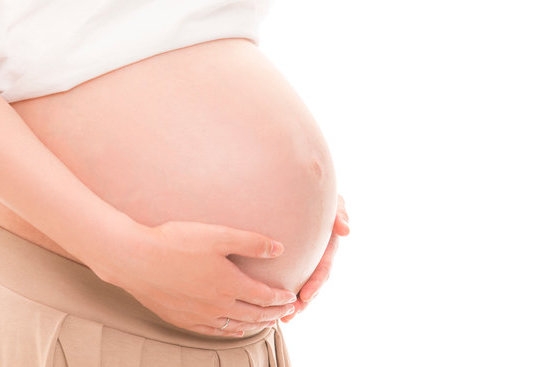Can you have a period in early pregnancy? This is a common question many women may have when they experience unexpected bleeding or changes in their menstrual cycle.
Understanding the relationship between the menstrual cycle and pregnancy can provide insight into this phenomenon. In this article, we will explore the signs and symptoms of early pregnancy, the key differences between a period and early pregnancy bleeding, what causes bleeding in early pregnancy, and when to consult a healthcare provider if experiencing such symptoms.
The menstrual cycle plays a crucial role in fertility and conception. It involves hormonal changes that prepare the body for potential pregnancy each month. However, it is important to note that experiencing bleeding during early pregnancy can be different from having a regular period. While some women may mistake early pregnancy bleeding for a period, it is essential to recognize the distinctions between the two and seek medical guidance if necessary.
As we delve into this topic, it’s important to emphasize the significance of understanding the signs and symptoms of early pregnancy, as well as dispelling common myths about having a period in early pregnancy. Through personal stories and experiences shared by women who have encountered bleeding in early pregnancy, we can gain insights into this aspect of reproductive health.
Furthermore, addressing misconceptions and providing accurate information about this topic can help individuals make informed decisions about their reproductive health journey.
Understanding the Menstrual Cycle and How It Relates to Pregnancy
The menstrual cycle is a crucial aspect of a woman’s reproductive health, and understanding it is important when trying to determine whether bleeding is a period or a sign of early pregnancy. During a typical menstrual cycle, the body prepares for pregnancy by thickening the lining of the uterus. If no fertilization occurs, this lining is shed, resulting in what is commonly known as a period.
However, in some cases, women can experience bleeding during early pregnancy that may be mistaken for a period. This can happen due to various reasons such as implantation bleeding, hormonal changes, or even cervical irritation. Understanding the differences between typical period bleeding and early pregnancy bleeding is essential for women who are trying to conceive or suspect they might be pregnant.
It’s important to note that while some women may experience light bleeding in early pregnancy, it is not the same as having a full period. Periods usually involve heavy flow and last for several days, whereas bleeding in early pregnancy is typically lighter and shorter in duration. Additionally, other common signs of early pregnancy such as breast tenderness, nausea, and frequent urination may also accompany this type of bleeding.
| Menstrual Cycle | Early Pregnancy Bleeding |
|---|---|
| Involves shedding of the uterine lining | Lighter and shorter duration compared to a full period |
| Likely accompanied by typical PMS symptoms | Possible signs of early pregnancy present (nausea, breast tenderness) |
As such, if you’re wondering “can you have a period in early pregnancy,” it’s essential to consider these differences and consult with a healthcare provider if you suspect you might be pregnant. Seeking medical confirmation through a pregnancy test and professional guidance from your doctor can provide clarity and peace of mind during this critical time.
Signs and Symptoms of Early Pregnancy
Understanding the Menstrual Cycle and How It Relates to Pregnancy
The menstrual cycle is a regular process that occurs in the female reproductive system. It involves changes in hormone levels, which result in the release of an egg from the ovaries and the thickening of the uterine lining. However, if fertilization does not occur, the uterine lining is shed during menstruation. This shedding is what we commonly refer to as a period.
Key Differences Between a Period and Early Pregnancy Bleeding
One of the key differences between a period and early pregnancy bleeding is the consistency and color of the blood. Menstrual blood tends to be bright red at first and then becomes darker over time, whereas early pregnancy bleeding may be lighter in color and more intermittent. Additionally, period bleeding typically lasts for 3-5 days, while early pregnancy bleeding may be shorter in duration.
Another important difference is the accompanying symptoms. During menstruation, women may experience cramps, bloating, and breast tenderness. On the other hand, early pregnancy bleeding is often accompanied by other symptoms such as nausea, fatigue, frequent urination, and increased sensitivity to smells.
What Causes Bleeding in Early Pregnancy
Bleeding in early pregnancy can be caused by several factors such as implantation bleeding (when the fertilized egg attaches to the uterus), hormonal changes, cervical irritation due to increased blood flow to the cervix, or in some cases it can be a sign of miscarriage or ectopic pregnancy. It’s important for women who are experiencing bleeding during early pregnancy to consult with their healthcare provider to determine the cause and ensure proper care.
Key Differences Between a Period and Early Pregnancy Bleeding
When it comes to the question of whether a person can have a period in early pregnancy, it’s important to understand the key differences between a typical menstrual period and bleeding that may occur during early pregnancy. The menstrual cycle is governed by hormonal fluctuations that result in the shedding of the uterine lining if no pregnancy has occurred. However, in early pregnancy, the fertilized egg implants itself into the uterine lining, causing changes that can lead to bleeding.
One of the key differences between a period and early pregnancy bleeding is the timing and duration. A typical menstrual period usually lasts for 3 to 7 days, while bleeding in early pregnancy may be lighter and shorter in duration. Additionally, the timing of this bleeding may occur around the time when a person would expect their period but can often be mistaken for a period.
Another important distinction is the nature of the bleeding. Menstrual periods involve the shedding of tissue from the uterine lining, resulting in distinct blood clots and tissue expulsion. In contrast, early pregnancy bleeding tends to be lighter and may appear pink or brown in color. It also does not typically contain as much tissue as a regular period.
Finally, it’s crucial to consider accompanying symptoms. During a period, individuals commonly experience cramping, bloating, and other premenstrual symptoms. In early pregnancy bleeding, individuals may still experience mild cramping or none at all. It’s important for individuals who are unsure about any bleeding they are experiencing to seek medical attention to rule out any potential complications with their pregnancy.
What Causes Bleeding in Early Pregnancy
Bleeding in early pregnancy can be a cause for concern for many women. It is important to understand what causes this bleeding and when it may be indicative of a potential issue. There are several factors that can contribute to bleeding during the early stages of pregnancy, which we will explore in this section.
Implantation Bleeding
One common cause of bleeding in early pregnancy is implantation bleeding. This occurs when the fertilized egg attaches itself to the lining of the uterus, which can result in some light spotting or bleeding. Implantation bleeding typically occurs around the time a woman would expect her period, leading to confusion and uncertainty about whether it is a normal period or something else.
Cervical Changes
Another factor that can cause bleeding in early pregnancy is cervical changes. The cervix may become more sensitive and engorged with blood during pregnancy, making it more likely to bleed, especially after sexual intercourse or a pelvic exam. This type of bleeding is usually not as heavy as a regular period and may be accompanied by other symptoms such as cramping.
Ectopic Pregnancy
In some cases, bleeding in early pregnancy can be a sign of an ectopic pregnancy, which occurs when the fertilized egg implants outside the uterus, usually in the fallopian tube. This can lead to vaginal bleeding, abdominal pain, and other symptoms that require immediate medical attention. It’s important for women to be aware of these signs and seek medical help if they experience these symptoms during early pregnancy.
When to Consult a Healthcare Provider if Experiencing Bleeding in Early Pregnancy
If you are experiencing bleeding in early pregnancy, it is important to consult a healthcare provider as soon as possible. While some women may mistake this bleeding for a regular period, it is crucial to rule out any potential complications and ensure the health and safety of both the mother and the developing fetus.
Bleeding in early pregnancy can be a source of worry and anxiety for many expectant mothers. It is essential to seek medical advice if you are unsure about the cause of the bleeding or if it is accompanied by severe cramping or abdominal pain. These could be signs of a potential miscarriage or ectopic pregnancy, both of which require immediate medical attention.
Additionally, if you have a history of miscarriages or complications during previous pregnancies, consulting a healthcare provider when experiencing bleeding in early pregnancy is essential. They can provide guidance and support throughout your pregnancy journey and monitor your condition closely to ensure the best possible outcome for you and your baby.
Overall, seeking medical assistance when experiencing bleeding in early pregnancy can provide peace of mind and essential care to address any potential concerns or complications. It is always better to err on the side of caution and consult with a healthcare professional who can provide personalized care based on your individual circumstances and medical history.
The Importance of Pregnancy Tests and Seeking Medical Confirmation
When it comes to early pregnancy, it is crucial for women to understand the importance of taking a pregnancy test and seeking medical confirmation. Here are some key points to consider:
- Pregnancy tests: It is recommended for women who suspect they may be pregnant to take a home pregnancy test. These tests measure the levels of hCG hormone in the urine, which is produced during pregnancy. It is important to follow the instructions on the test carefully and wait for the appropriate time to take the test for accurate results.
- Seeking medical confirmation: While home pregnancy tests are generally accurate, it is still essential to confirm the results with a healthcare provider. This can be done through a blood test at a doctor’s office or clinic. Medical confirmation of pregnancy is important as it allows for proper prenatal care to begin and ensures that any potential issues or complications are addressed early on.
It is common for some women to experience bleeding in early pregnancy, which can lead to confusion about whether it is a period or something else. This is why taking a pregnancy test and seeking medical confirmation are critical steps in understanding what may be happening with your body.
Additionally, consulting with a healthcare provider can provide peace of mind, support, and guidance during this important time. They can offer valuable information on how to best care for yourself and your developing baby, as well as address any concerns or questions you may have.
Remember, if you suspect you may be pregnant or experience any unusual bleeding or symptoms, taking a pregnancy test and seeking medical confirmation can provide clarity and help ensure the best possible outcome for you and your baby.
Personal Stories and Experiences From Women Who Have Experienced Bleeding in Early Pregnancy
During early pregnancy, some women may experience bleeding that can be mistaken for a period. This can lead to confusion and uncertainty about whether or not pregnancy is actually occurring, leading to anxiety and stress. To shed some light on this issue, we reached out to several women who have experienced bleeding in early pregnancy to share their stories and experiences.
Here are some personal stories and experiences shared by women who have gone through bleeding in early pregnancy:
- Story 1: “I was so scared when I saw blood, thinking that I was having my period. But after taking a pregnancy test, it turned out that I was actually pregnant. It was such a relief to know that the bleeding was not a period but rather implantation bleeding. It’s important to trust your instincts but always seek medical advice just to be sure.”
- Story 2: “I had light spotting for a few days around the time my period was due, and I honestly thought it was just a late period. After doing some research and consulting with my doctor, I learned that it could be early pregnancy bleeding. Sure enough, I took a test and it came back positive. It’s crazy how similar early pregnancy bleeding can be to a period.”
- Story 3: “I never knew that bleeding in early pregnancy was even possible until it happened to me. At first, I thought something was wrong, but thankfully everything turned out okay. It’s important for anyone experiencing any type of bleeding during their suspected pregnancy to not panic but rather consult with their healthcare provider as soon as possible.”
These stories emphasize the importance of seeking medical confirmation when dealing with potential signs of early pregnancy, including bleeding. Each woman’s experience highlights the need for proper information and guidance during such a delicate time.
Conclusion
In conclusion, it is crucial to address the common myths and misconceptions surrounding the idea of having a period in early pregnancy. The understanding of the menstrual cycle and its relation to pregnancy is essential in debunking these misconceptions. While it is possible to experience bleeding during early pregnancy, it is not the same as having a regular period.
As discussed, signs and symptoms of early pregnancy include nausea, fatigue, breast tenderness, and frequent urination. These symptoms may overlap with premenstrual symptoms, further adding to the confusion. However, it’s important to note that bleeding during early pregnancy can occur due to various reasons such as implantation, hormonal changes, or even complications like ectopic pregnancy. Therefore, seeking medical advice and undergoing proper testing are crucial steps for anyone experiencing bleeding while pregnant.
In light of personal stories and experiences shared by women who have encountered bleeding during early pregnancy, it becomes evident that every individual’s journey is unique. By shedding light on this topic and encouraging open conversations about reproductive health, we can continue to educate and support those who may be navigating through similar experiences.
It is imperative to dispel the misconceptions about having a period in early pregnancy and promote awareness about the factors that contribute to bleeding during this critical time. Ultimately, seeking professional guidance and staying informed are essential when addressing any concerns related to early pregnancy bleeding.
Frequently Asked Questions
Can You Get a Full Period and Still Be Early Pregnant?
It is possible to experience what seems like a full period during early pregnancy, although it may not be as heavy or last as long as a regular period. This bleeding can be mistaken for a period, but it’s actually known as implantation bleeding.
Can Your Period Come Early if You Are Pregnant?
Yes, it is possible for some women to experience early bleeding or spotting during pregnancy that resembles a lighter or shorter period. This can occur when the fertilized egg attaches to the uterine lining, causing some slight bleeding.
Can You Bleed Like a Period First Month of Pregnancy?
Bleeding that closely resembles a period during the first month of pregnancy can occur in some women due to implantation bleeding. This type of bleeding generally occurs around the time of the expected period and is often lighter and shorter than a regular period.

Welcome to my fertility blog. This is a space where I will be sharing my experiences as I navigate through the world of fertility treatments, as well as provide information and resources about fertility and pregnancy.





